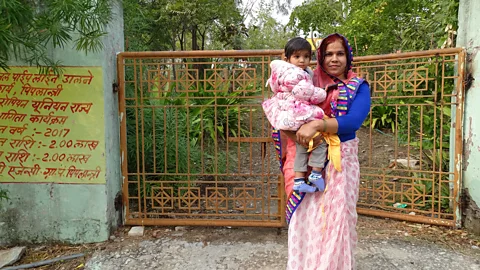Piplantri: The Indian village where girls rule
 Bhavya Dore
Bhavya DoreIn India, girls have historically been valued less than boys. But after a father tragically lost his daughter, he spearheaded a nationwide campaign to change gender perceptions.

50 Reasons to Love the World - 2021
Why do you love the world?
“Because the more we protect the environment [around Piplantri, India], the more it will reciprocate. Those who work with nature don't worry too much. Nature gives me strength; our daughters and this work gives us strength.” – Shyam Sunder Paliwal, eco-feminist
Shyam Sunder Paliwal cracked open the pod and the blood-red seeds dribbled out. Holding it in his palm, he offered the fruit of the sindoor shrub up for inspection.
The plant, which produces the vermilion powder that Indians often apply on their foreheads for cosmetic and religious purposes, doesn't normally grow in this region. But it is one of many types of trees that now grow in Piplantri, a collection of six connected hamlets in Rajasthan in north-west India.
In 2005 when Paliwal became the sarpanch, or village head, marble mining had denuded the hills; the surrounding land was parched and the foliage degraded. And like in most of India, daughters here were viewed as a financial burden and devalued compared to sons, who typically help their parents economically.
Then in 2007, Paliwal's 17-year-old daughter Kiran died following a bout of dehydration. Heart-broken but eager to honour her memory, his family planted a tree near the entrance of the village in her name. As Piplantri's leader, Paliwal thought, why not turn this one-off event into a wider programme? Soon, other villagers began to follow his lead.
Now, every time a girl is born in Piplantri, villagers plant 111 trees – an auspicious number for local Hindus – to both honour her and to regenerate the environment.
 Bhavya Dore
Bhavya Dore"If we can do it in one girl's name, why not do it in every girl's name">window._taboola = window._taboola || []; _taboola.push({ mode: 'alternating-thumbnails-a', container: 'taboola-below-article', placement: 'Below Article', target_type: 'mix' });
